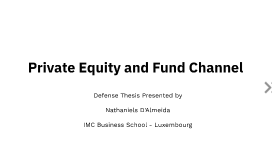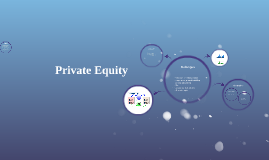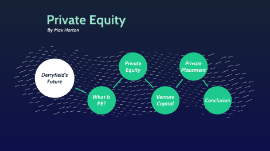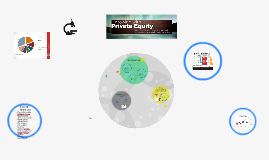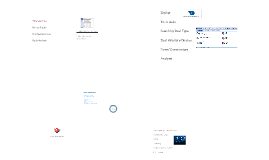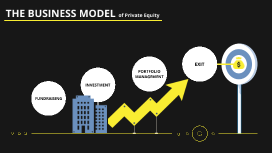Private Equity: Case Study
Transcript: 5. If revenues are going to grow faster because of the synergy apply a faster growth rate to revenue in the combined statement. If costs are going to be cut, show the reductions in costs on the statement. Part 3: The value paid for acquisition THANK YOU! NATUREX & ROBERTET Synergy Valuation 3. Prepare cash flow statement for the combined firm Under the Florange law, those bidding to take over a company in France are also now legally obliged to meet with the workers' committee of the target company and answer questions about what they plan to do if they succeed in taking over. Bidders who refuse to divulge their plans, or are later to be found to have withheld their genuine intentions, could in some cases face prosecution for infringing the law. With the adoption of the Florange law, companies are now able to employ a range of defensive measures against takeover bids. Pre-Florange, company boards required the permission of shareholders to take defensive action, but now they can go ahead with defensive measures without shareholder permission, provided that their defensive action is within their rights and provided that it is in the interests of the company. Part 6: Execution Risk Synergies>Premium DEAL DONE! Shares dilution level Roll up strategies consolidate highly fragmented markets where the current competitors are too small to achieve scale economies. This strategy works when business as a group can realize substantial cost savings or achieve higher revenues. 2. Value the combined firm assuming no synergy €901.23 (€93.50/ share) Business Case: Acquisition of NATUREX by ROBERTET Team Members: Amine Jiraoui, Angimel Nomel, Bachir Mahdi-Djama, Eleni Choutouriadi, Keer Deng, Marianne Lamache, Miriam Toumi, Yue Qin Price bubble (speculators knowing that Robertet wants to buy Naturex) Rergulatory issues Limited growth prospects Integration/cultural issues Resistance from shareholders €228.38 millions Part 1: SYNERGY Justification of the cash use: leverage effect => possibility to borrow Justification of the shares use: market price and evolution in the 5 past years Sell the parts of Naturex which are not profitable. Looking at listed companies doing the same activities for the price. Part 5: Decision of Robertet main investors Part 4: Financing Approach Robertet has some business units in the same sector as Naturex. Some Potential Revenue synergies include: Marketing and selling complementary products Cross selling into a new customer base Optimization of the chain value & reduce operating costs (merging some offices located in the same countries). Access to new markets(Naturex has offices in some countries that Robertet is not present). Reduced competition 6. The difference is the synergy gain. This is the MOST that one should as a takeover premium 1. Value each company, projecting out FCFs & terminal value Max bid = market price x 1.3 (30%) and have to be < potential synergies Looking actual condition and knowing that shareholders will discuss the price start with market price x 1.1 4. Evaluate where the gains from synergy are going to come from Robertet Shareholders reaction 60% public shares buy directly on the market (market price + premium) FINASUCRE: largest shareholder with more than 30% (blocking minorities), convince them with Robertet shares (highest value all time) + cash. CARAVELLE: investment firm, looking at the best possibility French law (worker committee) Part 2: TAKE OVER RESPONSIBILITIES






